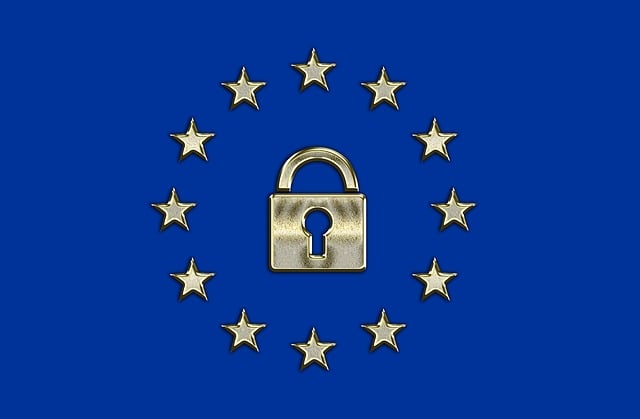RF Regulatory Agency investigations are crucial for upholding RF standards and promoting ethical conduct. The Right to Counsel in Criminal Cases is an essential legal right that applies during these inquiries, protecting individuals' rights and ensuring fairness. This process has significant consequences for businesses and individuals, highlighting the importance of experienced legal counsel to navigate regulatory challenges and achieve positive outcomes.
In an era where radio frequency (RF) technology permeates daily life, RF Regulatory Agency Investigations play a critical role in ensuring safety and compliance. This article delves into the intricacies of these investigations, shedding light on key aspects such as understanding the process, recognizing the right to counsel, navigating investigatory powers, and exploring legal protections. We also analyze the significant implications for both industry and individuals, emphasizing the importance of knowing one’s rights, especially in criminal cases involving Right to Counsel.
- Understanding RF Regulatory Agency Investigations
- The Role of Right to Counsel in Proceedings
- Investigatory Powers and Legal Protections
- Implications for Industry and Individuals
Understanding RF Regulatory Agency Investigations

RF Regulatory Agency Investigations are a critical aspect of ensuring compliance with radio frequency (RF) standards and regulations. These investigations delve into potential violations, from manufacturing defects to unauthorized spectrum usage. Understanding the process is paramount for businesses operating in this space. The Right to Counsel in Criminal Cases, a fundamental legal principle, also applies here, granting individuals the right to legal representation during RF regulatory inquiries. This is especially significant in high-stakes cases, where companies and their leaders face severe consequences.
The investigations are not merely about enforcement; they foster a culture of ethical conduct within the philanthropic and political communities that heavily rely on RF technologies. For his clients, ensuring transparency and cooperation throughout these processes can make all the difference. Navigating these inquiries with the aid of experienced legal counsel allows individuals to protect their rights while addressing any regulatory concerns promptly and effectively.
The Role of Right to Counsel in Proceedings

The Right to Counsel is a fundamental aspect of any legal proceeding, especially in criminal cases. This right ensures that individuals facing allegations have access to legal representation, which plays a pivotal role in safeguarding their interests and ensuring fairness throughout the investigation and trial processes. In the context of RF Regulatory Agency investigations, having legal counsel means that respondents can navigate complex regulations and protect their rights effectively.
Having an attorney by your side provides several key advantages. They can offer strategic guidance, helping clients understand their rights and obligations under the law. This is particularly crucial during investigative phases where questions about data privacy, transmission protocols, or equipment compliance may arise. Legal counsel can also facilitate effective communication with agency investigators, ensuring that their client’s interests are accurately represented. Moreover, in cases where the charges are severe, leading to potential penalties or a complete dismissal of all charges, having the Right to Counsel ensures that philanthropic and political communities are protected from arbitrary or unfair treatments within legal frameworks.
Investigatory Powers and Legal Protections

RF Regulatory Agency investigations come with a delicate balance between ensuring compliance and respecting individual rights. These inquiries are conducted under a framework of legal protections, designed to safeguard citizens from arbitrary or excessive government power. One such crucial protection is the Right to Counsel in Criminal Cases, which allows individuals facing regulatory charges to seek legal representation for their defense. This right is vital, enabling individuals to navigate complex investigations with knowledgeable advocacy and achieving extraordinary results.
Across the country, philanthropic and political communities recognize the importance of these safeguards in maintaining a fair and transparent regulatory environment. By ensuring that investigatory powers are exercised within legal boundaries, these protections foster public trust and confidence in RF Regulatory Agency processes, ultimately contributing to the overall integrity of the nation’s regulatory landscape.
Implications for Industry and Individuals

The implications of RF Regulatory Agency investigations extend far beyond the immediate scope of the affected entities. For industry, these inquiries can lead to significant operational disruptions and financial burdens, particularly in high-stakes cases where non-compliance can result in severe penalties. Companies must navigate a complex landscape, ensuring adherence to ever-changing regulations across the country, while also managing potential reputational damage that could impact their future prospects within the market.
For individuals involved, the process may pose unique challenges, especially regarding the Right to Counsel in Criminal Cases. As investigations escalate, so does the risk of personal involvement, and access to legal representation becomes paramount. The stakes are high not only for businesses but also for those whose careers and freedom could be at risk, particularly as these cases often resonate across the philanthropic and political communities.
RF Regulatory Agency investigations hold significant weight in ensuring compliance with radio frequency (RF) standards. Understanding the process, especially the role of the Right to Counsel in criminal cases, is crucial for both industry professionals and individuals alike. These inquiries are meticulously conducted, balancing investigative powers with legal protections to safeguard rights. By navigating these complexities, stakeholders can ensure fair practices, maintain regulatory adherence, and foster a transparent environment within the RF spectrum landscape.






